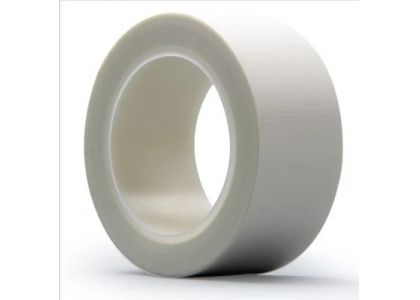
Manufacturers are increasingly relying on advanced insulation tapes for their proven durability and dependable performance. Glass cloth electrical tape stands out for its high thermal resistance and secure adhesive properties, which are critical in maintaining system stability during demanding applications. Used in tandem with glass cloth masking tape and insulation glass cloth tape, these solutions provide targeted insulation for wiring, protect sensitive parts during high-temperature treatments like powder coating, and seal critical components effectively. The broader category of glass cloth tape uses has proven invaluable in supporting accurate, controlled production workflows.
The effectiveness of these materials lies in their carefully engineered properties. Glass cloth electrical tape features high dielectric strength, abrasion resistance, and stable performance under fluctuating thermal conditions. These characteristics are essential for ensuring system reliability in intense operational environments. Meanwhile, glass cloth masking tape is preferred for its clean removal and ability to shield surfaces without leaving residue—ideal during surface treatments or precision coating. The flexible yet resilient structure of insulation glass cloth tape further enhances its utility, while industrial strength cloth tape brings added toughness to applications that demand mechanical strength and longevity. Altogether, their tested performance metrics consistently meet and often exceed industry expectations.
These versatile insulation tapes are not merely theoretical solutions; they demonstrate tangible benefits in real-world industrial settings. In electronics production, for instance, glass cloth electrical tape is employed to insulate intricate wiring configurations, minimizing short-circuit risks and enhancing device reliability. Automotive factories use glass cloth masking tape during painting stages to achieve crisp edges and prevent contamination of key components. Insulation glass cloth tape capable of withstanding elevated temperatures helps maintain the performance of high-heat machinery while reducing downtime. In complex assembly operations, industrial strength cloth tape offers a practical solution to challenges involving weight-bearing or high-stress fastening requirements.
To fully realize the advantages these tapes offer, manufacturers are adopting standardized application techniques. Best practices include thorough surface cleaning, maintaining consistent environmental conditions, and utilizing tools designed for precision tape placement. For instance, guidelines recommend applying glass cloth electrical tape with smooth, continuous pressure to eliminate air pockets and ensure full adhesion. Glass cloth masking tape applications, particularly in paint and coating scenarios, benefit from careful alignment and proper tension to facilitate clean removal. Adhering to such protocols not only improves the performance of each application but also minimizes material waste and production delays.
Real-World Feedback and Operational Impact
Firsthand experiences from industry professionals highlight the impact of incorporating advanced insulation tapes into manufacturing routines. Technicians report fewer equipment failures and more stable operations after transitioning to glass cloth electrical tape-based solutions. Glass cloth masking tape tailored for industrial use consistently earns praise for its ability to maintain surface integrity even under high-volume use. Likewise, insulation glass cloth tape is valued for its role in minimizing rework and increasing product uniformity. Even in heavy-load scenarios, industrial strength cloth tape delivers reliable performance, helping teams address mechanical and thermal challenges more effectively.
The future of manufacturing will depend heavily on materials that can adapt to emerging challenges and more sophisticated equipment. As such, the demand for next-generation insulation tapes is expected to grow. Advances in polymer and fabric technologies are paving the way for more durable and eco-conscious formulations. Enhanced adhesive systems and smarter structural designs are in development to improve ease of application and long-term durability. From upgraded glass cloth electrical tape to precision-engineered glass cloth masking tape and insulation glass cloth tape, these innovations promise to elevate the standard for reliability and performance across industries.
By staying aligned with evolving production needs, glass cloth tape uses and related technologies are set to remain a cornerstone in high-performance manufacturing. Their broad applicability and demonstrated effectiveness ensure they will continue to support the next wave of industrial innovation with strength, precision, and flexibility.